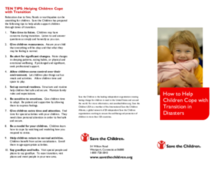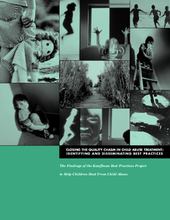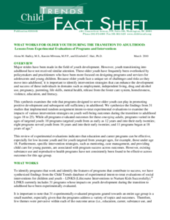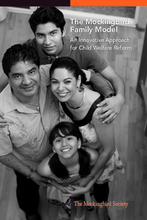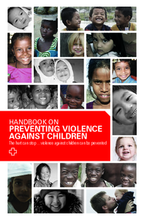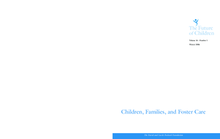Displaying 411 - 420 of 437
A leaflet for parents on how to help your child cope during an evacuation or relocation in an emergency.
An overview of considered best practices in therapy for child survivors of physical and sexual abuse.
A new Child Trends fact sheet examines the role that programs for older youth can play in promoting positive development and subsequent self-sufficiency in adulthood.
This article describes several parent partner/advocate programs operating around the United States, including programs that train parents to serve as parent mentors and programs that train parent leaders to sit at the decision-making table and influence child welfare policy.
From preventative strategies to transitional and permanency solutions, the Mockingbird Family Model (MFM) offers a comprehensive support structure for families and children across the continuum of the child welfare experience. This resource briefly describes the MFM and its current activities.
This book features individual empirical studies on the outcomes and progress made for children in foster care around the world.
The Canadian Red Cross has produced a handbook on the prevention of violence against children. The handbook includes specific guidance on preventing violence against vulnerable children, such as children in institutions, children involved in armed conflict and children with disabilities.
Provides global estimates of the number of highly vulnerable children; a summary of United States Government (USG) assistance programs for highly vulnerable children; a summary of progress coordinating the response among USG agencies; key strategic issues and opportunities; priorities for 2009–2010 and beyond; and a summary of the results and achievements of USG assistance
This paper examines the efficacy of Independent Living (IL) services in the United States in preparing foster youth to live “independently”, and calls into question the appropriateness of an “independence” goal for youth aging out of foster care.
The current assessment is the fourth in a series of independent assessments examining core systemic issues in Michigan’s child protection system.

